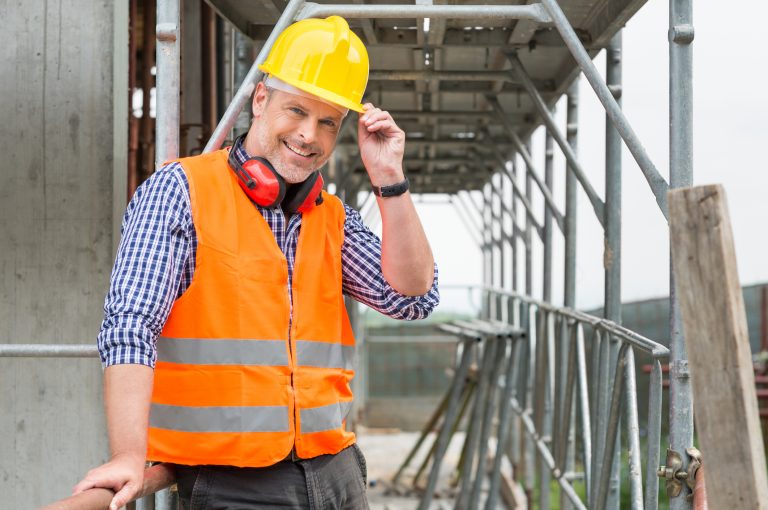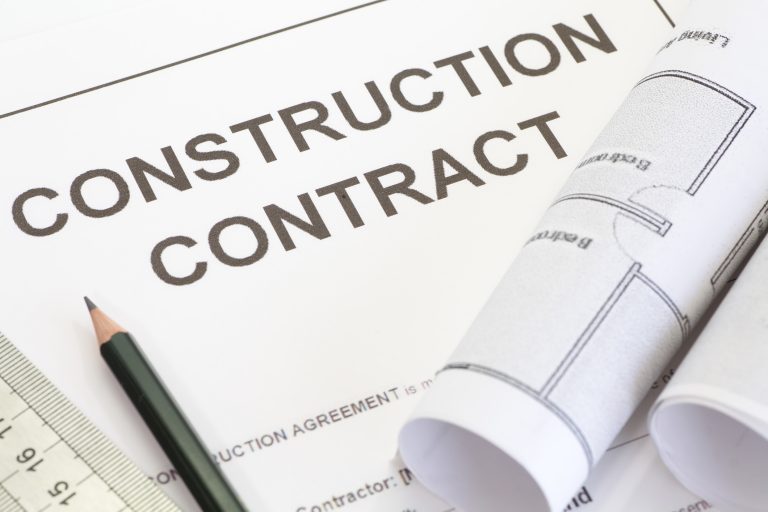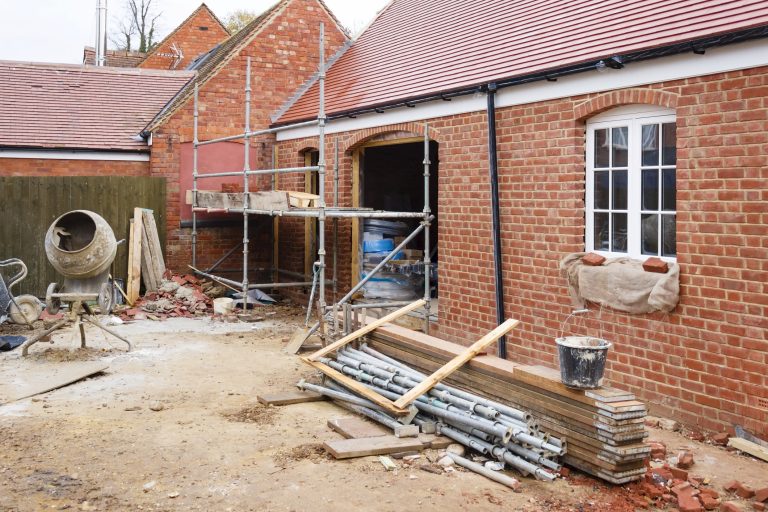Step 4. Build
Getting Organised at the Building Stage
The fourth and final stage of your project is the completion of the building works. This is probably the stage that most homeowners have concerns about, but there is a lot that can be done to help the building work run as smoothly as possible.
Having good quality documentation at the design stage helps to minimize any misunderstandings between you and the builder and to clarify what is included in the work. We would always recommend preparing a Specification of Work which will help the builder to quote and can be included as one of your contract documents. Our design service includes for this.
We can also help you with other checks such as notifying your own insurers, reviewing parking arrangements and permits, deciding on where materials and equipment can be stored, etc.
Finding a Builder
Finding a builder can be hard work and, the good news is, we are here to help you find one.
We work with a number of partner builders and are happy to recommend businesses we know in your area. You may also wish to obtain quotations from builders outside of our team and we would always recommend that you view some of their completed work before making a decision. It can also be a good idea to visit a site that the builder is currently working on to get an idea of how organised the project looks.
When obtaining quotations always ask the builder to confirm when they are available and how long they anticipate the project taking to complete as this may influence who you choose.
It is also worth checking if the builder is a member of any trade associations such as The Federation of Master Builders.
We will help deal with any queries that you or the builder may have at the quotation stage.

Checking Quotations and Choosing a Builder
Quotations can vary considerably so having clear design information can help avoid variations in the works quoted. If possible, try and get the builder to provide a cost breakdown as this helps you to see where the main costs of the work are and may assist with some items being removed from the works if the quotes are higher than expected. Check if VAT id included in any quotations you receive.
Your choice of builder may also depend on availability and you may be influenced on how well you feel you can communicate and work with the business.
Setting up a Contract

Once a builder has been chosen, it is very important to have a formal agreement for the work. Many builders will have their own contracts but there are also standard documents available such as the JCT Minor Works contract and the FMB contract.
The main terms of agreement that should be covered include:
1. The agreed contract price for the work and payment terms. Avoid paying large deposits for the work as this can leave you vulnerable if you have problems during the build process.
2. The contract documents – to include drawings, specification and structural calculations.
3. Start and completion date.
4. Insurance details including extent of cover.
5. Dispute procedure – it is worth considering appointing an arbitrator that both you and the builder will abide by if you can’t resolve a dispute yourselves.
6. Procedures for completion – this to include a retention/drying out period and documents to be provided by the builder on completion such as warranties, guarantees and building regulations completion certificate.
Carrying Out The Work
Whilst the builder may be reluctant to provide one, we do recommend that a programme of works or schedule of activities is prepared for your project. This can be a simple breakdown of the intended weekly tasks or issued as a spreadsheet chart. Either way, this helps you to understand how the builder intends carrying out the work and when critical activities such as breaking through into the existing property are scheduled. It also enables you to check on a week by week basis if the builder is on programme.
We would also strongly recommend that keep a diary and a photographic record during the building process as this will help if you have issues with delays, materials used, etc. There may be periods where works cannot progress due to poor weather or material deliveries and you will need to agree with the builder if the agreed contract time can be extended as a result. Keep a record of any dates that the building inspector has visited the site to inspect the works. The builder is usually responsible for arranging the visits so check with him when these have been carried out and if there were any issues raised.
During the building process, there will be a multitude of decisions you will need to make on the final choices of fixtures and fitting such as lights, sanitaryware, wall and floor finishes, etc. so it is a good idea to have a regular (weekly or fortnightly) meeting with the builder to go through these and keep a note of anything agreed.
This meeting can also include a review of progress, payments made or due, confirming any cost variations for additional or omitted works and any other queries you or the builder may have. It is a good idea to issue formal minutes to these meetings to keep a record of anything that is agreed. The building process can be an emotional time for you as the homeowner as you have a multitude of people carrying out the work which can feel like an invasion on the privacy you usually enjoy in your home. However, it is a time to focus on the additional space you will enjoy when the project is finished.

Completion of the Project
Once works are complete, it is a good idea to have a ‘drying out’ or retention period. When any building is completed, the moisture in the construction needs to dry our over a period of time and this can cause some minor defect items such as shrinkage cracking in walls and ceilings, timber drying out and the possibility of doors and windows needing adjustment. We would usually suggest 3-6 months as an agreed period and you should hold back a percentage of the contract sum to be paid once any defects have been rectified.
Also make sure the builder provides you with any written guarantees from himself or other contractors involved in the project such as window and door suppliers, roofing contractors, heating engineers, etc. The electrician should provide a completion certificate and, once all works are complete, the building inspector will also carry out a final inspection and issue a completion certificate.
We would recommend that any final payment to the builder is not made until the building inspector has signed off the project. At the end of the process, you will be able to enjoy the additional space you have created for many years to come.





